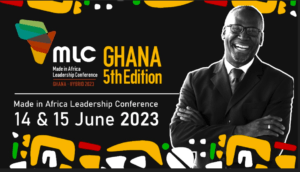Imagine how Noah must have felt. There he was, having been given a vision of the future, building an ark in a land where flooding was unheard of. He must have heard what they said about him behind his back as he toiled to build what some might have called a “white elephant”.
Yet, despite the criticism he probably faced and the ridicule he must have felt as people talked about him behind his back, he continued to toil at building the ark that would later save his entire family from a devastating flood. Imagine how the other family and community leaders must have felt on the first day of rain that eventually led to a flood that covered their homes and land, and eventually became their grave.
They must have gone through initial steps of disbelief, then hastily tried to put together makeshift shelters, then construct emergency rafts, then tried banging on the door of the ark as it sailed away, realizing that their lack of preparation and poor decision-making had doomed them and their families to death. Leadership really does matter, and the decisions we take as leaders have long-term ramifications.
In 2015 the East African Community (EAC) announced its intention to introduce a ban on second-hand apparel from their markets from 2019. The decision to ban was influenced by research conducted by USAID that revealed that the EAC accounted for nearly 13percent of global imports of used clothing worth US$274 million and that 67percent of the East African population purchased at least a fraction of their clothes from used clothing markets.
The response from the USA was swift and decisive. A trade organization in the United States filed a petition with the Office of the US Trade Representative (USTR). The organization asserted that the EAC’s 2016 decision to ban used clothing would impose significant economic hardship on America’s used-clothing industry. It was estimated that EAC’s second-hand apparel ban could cost 40,000 US jobs and US$124m in exports.
In March 2017, the USTR threatened to remove four East African countries – Kenya, Uganda, Tanzania, and Rwanda – from the Africa Growth and Opportunity Act (AGOA). AGOA is a flagship US trade legislative policy designed to boost trade and investment in qualifying African countries by granting duty-free access to 6,500 exported products. A defiant Rwanda stayed adamant about their policy which led them to be removed from the list of countries that benefitted from the AGOA.
The government of Rwanda perceived the wearing of used clothing as a factor that robbed its citizens of jobs and threatened the dignity of its people. They strategically saw the move as a way to help nurture its garment industry and create more than 25,000 jobs. The other countries in the EAC backed out.
From 2018 to 2020, Rwanda’s exports in textiles to the US fell from US$2.5 million to US$224,000 but its garment industry has seen an 83percent increase in value with producers taking advantage of local markets and other international markets. In other African countries that have not introduced tariffs on used clothing or textiles, their textile industries have been decimated and hundreds of thousands of jobs have been lost.
The starkest example of this is in Nigeria, where it is reported that over 160 garment-producing companies have shut down in the past three decades leading to a loss of over 1,500,000 jobs for Nigerians. The conservative estimate on the cost of our leaders’ inability to see the future and demonstrate the courage of Noah with regard to the textile industry is a cost of over 4,000,000 jobs for Africans. All of this to save about 300,000 jobs in the USA.
Today, many African countries are grappling with a demographic problem…a youth bulge, urban sprawl, high levels of youth unemployment, and the instability and social problems that come with it.
The recent upheavals in African countries that occurred in the past six months when the war in Ukraine caused an interruption of fuel and food supply chains and an increase in their prices served as a wake-up call for leaders to realize that the flood may have started and we are only in the initial days of rain. While we pray for the rain to not become a flood, there are a few lessons here that we, as leaders of organizations big and small in Africa, can learn:
- Our job requires us to look ahead and look around. As a leader, your role is not limited to managing the day-to-day activities of your organization; it is primarily to look ahead and prepare your organization for a future that you and your people desire to enjoy. This requires you to cast a vision and be sensitive to trends; it means that you must also be conscious of what others are doing. If a few of your competitors are buying raincoats, they might know something about the weather forecast that you don’t. Resist the urge to believe that your competitors are silly or unintelligent or wilfully wasteful. If they are doing things that you do not understand, it may be because they have access to information that you do not.
- In order to harvest, we must endure a period of scarcity. Courage is one of the requirements of good leaders. Courage is what enables parents to say no to their children even when their children will be upset with them and may not want to smile at them. Courage is what enables a leader to hold his people to standards even though they may not like it. Courage is what allows a leader to say no to important stakeholders because it is not in the long-term interest of the organization even if they will not like it. Courage is what enables a leader to make decisions that may put his people and organization through a period of scarcity or pain because it is necessary for them to experience long-term gain of achieving their collective vision.
Dear African Leader, please remember that your decisions have long-term ramifications on your organization. Do you have a clear five or ten-year vision for your organization? Are you aware of the trends that will affect your organization? Are you keeping tabs on what your competitors and other organizations are doing to secure their future? Are you making the tough and unpopular decisions that may be necessary to ensure that your organization’s future is secured? Don’t wait until the rain starts before you start building the ark.
Remember that there are people who are counting on you to make optimal decisions that will impact their lives and livelihoods. Look ahead and act with courage based on your convictions. They may laugh at you now or persecute you or complain about you, but they will thank God for you in the near future.











